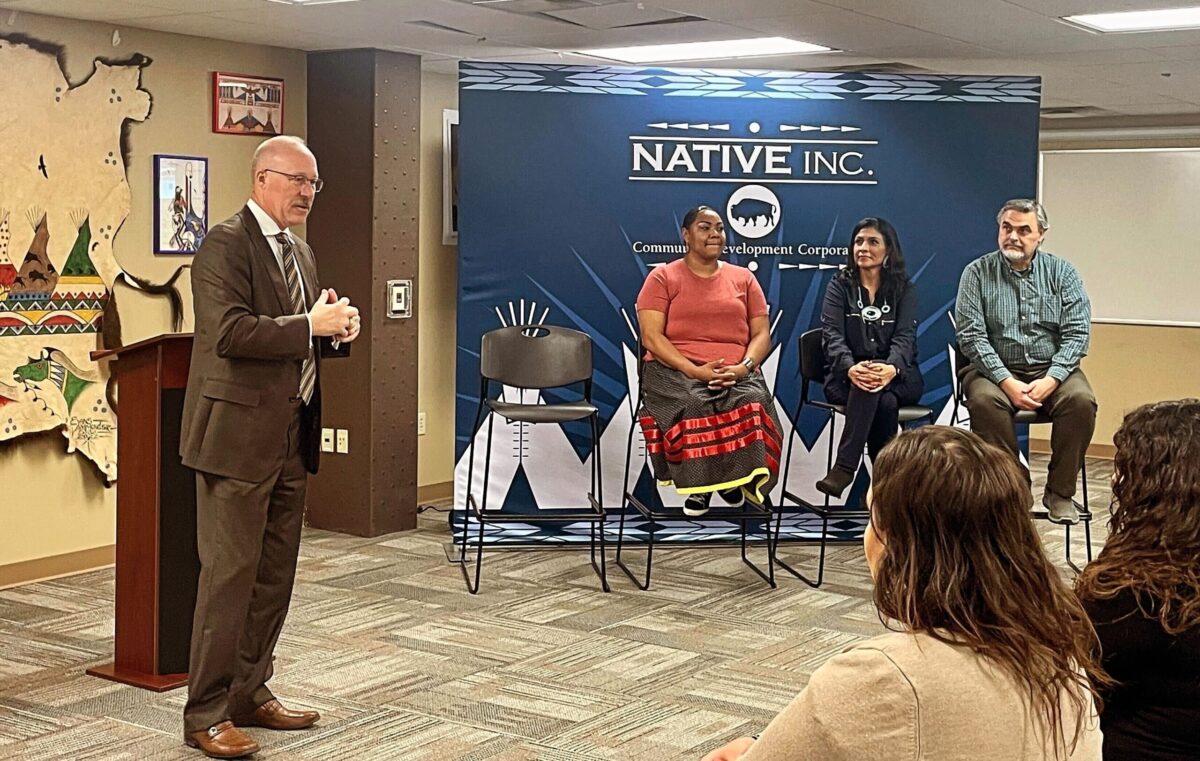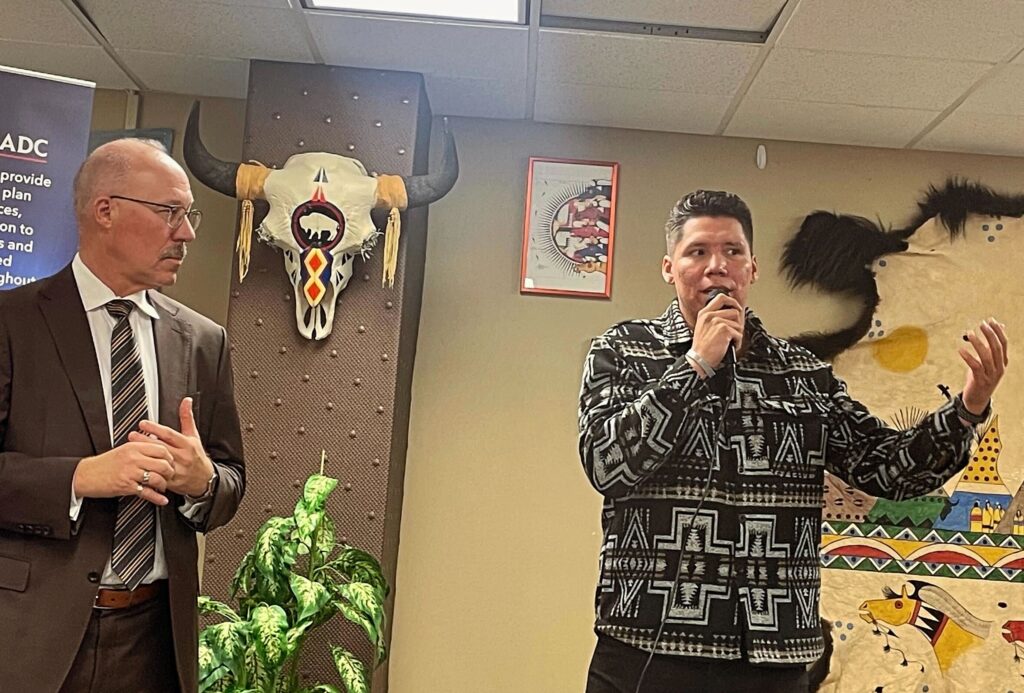News Based on facts, either observed and verified directly by the reporter, or reported and verified from knowledgeable sources.
Bismarck Mayor addresses concerns of discrimination, affordable housing by Native youth
 Mayor Mike Schmitz addressed the community’s concerns about racism, crime rates and affordable housing on Oct. 18. Photcredit/ Adrianna Adame
Mayor Mike Schmitz addressed the community’s concerns about racism, crime rates and affordable housing on Oct. 18. Photcredit/ Adrianna Adame
Native Inc. Youth Meet and Greet encourages children to interact with local leaders
Families gathered to ask Mayor Mike Schmitz questions about issues that affect Bismarck’s American Indian community at the Native American Development Center on Oct. 18.
Josephine Thundershield, a local resident, helped students write down their questions on a piece of paper for the mayor to answer. She participated in the meet-and-greet because she wanted to spread awareness about discrimination in Bismarck-Mandan.
“Everybody needs to know what the real issues are around here,” said Thundershield. “And the real issue is how the Native American community is being stereotyped and targeted.”
The mayor addressed participant’s concerns about racism, crime rates and affordable housing. “Unfortunately no matter where we live or where we are, there’s discrimination,” said Schmitz. “It’s not right.”
American Indians are reported by the U.S. Census Bureau to be North Dakota’s biggest minority population at 5.3% as of 2022. Bismarck’s Native population is recorded to be 4.9% out of 74,000 residents.
The mission of Native Inc. and the Native American Development Center, two merged non-profit organizations, is to support Bismarck-Mandan’s American Indian community with affordable housing, culture, education, workforce and economic services. Darius Sparks, the care coordinator and peer support specialist at Native Inc., collaborated with Schmitz, his foster father, to come down to the center for the meet-and-greet.
When Sparks was 12 years old, he was sent away from his home and mother in Standing Rock to enter the foster care system. Janel Schmitz and her husband learned of Sparks years later before adopting him when he was 16 years old. The Schmitz family raised the then-teen like one of their own two sons.

Growing up, Sparks dealt with discrimination both on and off the reservation. Schmitz said he remembers his foster son telling him about an incident at the movie theater with his girlfriend, where people made remarks and called Darius names several times during the film.
“I was either hated on the reservation because I wasn’t Native enough or I’m hated because I’m off the reservation and I’m Native,” Sparks said.
The mayor said that fostering a Native teen made him realize there was prejudice against people of color in the community. “I think what we learned the most was the hardship that non-White individuals can go through,” Schmitz said.
The purpose of Native Inc. staff setting up the youth meet-and-greet with the mayor is to help the community feel heard. Sparks wanted to create a conversational atmosphere for American Indian children to interact with local leaders. “I think it’s very important to set these up for our youth so that they don’t feel left out in anything and know that their questions do matter,” Sparks said.
Schmitz encouraged Native youth to become involved in politics. “You need to surround yourself with people who are like-minded and are willing to help you to formulate your policies and listen to you as a sounding board,” Schmitz said.
One of the many ways that Schmitz said he became exposed to local politics is by becoming engaged with the community. Other residents, such as Thundershield, want to see the local American Indian citizens get involved with their children’s schools and come together to resolve discrimination. “We need more people to volunteer and make Bismarck better again,” Thundershield said.
Though Schmitz didn’t have a set answer regarding crime rates and affordable housing, he said he cares and it’s a good thing for these questions to be asked.
“If I can’t be accessible, I can’t help find solutions that we need to have as a community,” said Schmitz. “Certainly for the Native culture, but for all of us, because we’re all important.”
Dateline:
BISMARCK, N.D.
